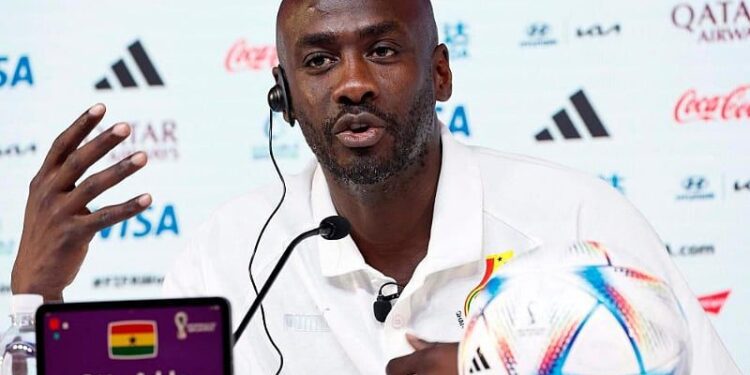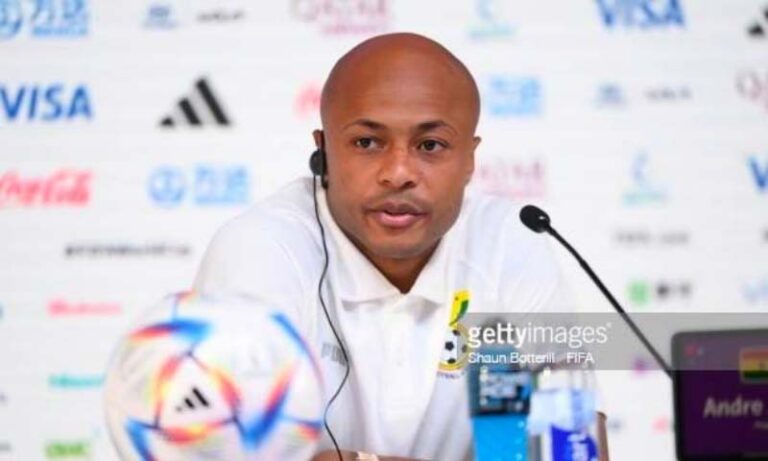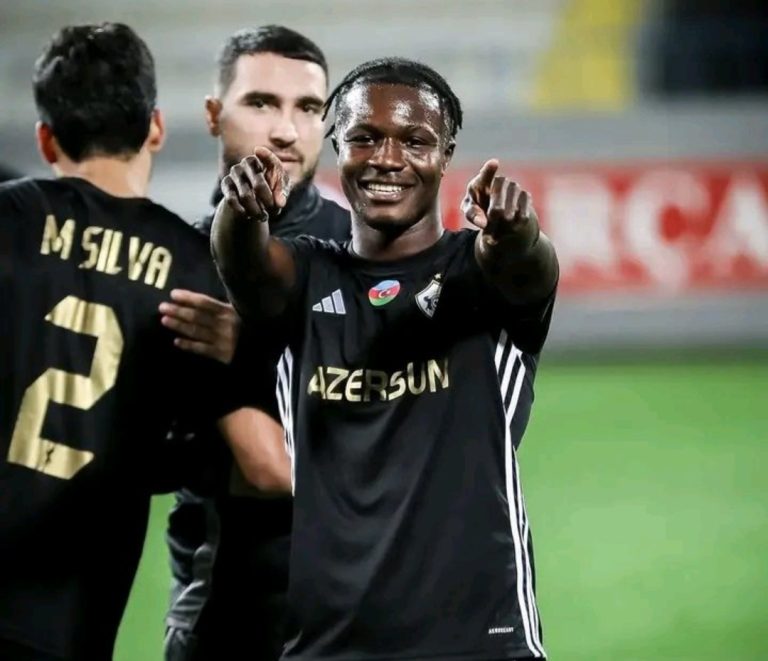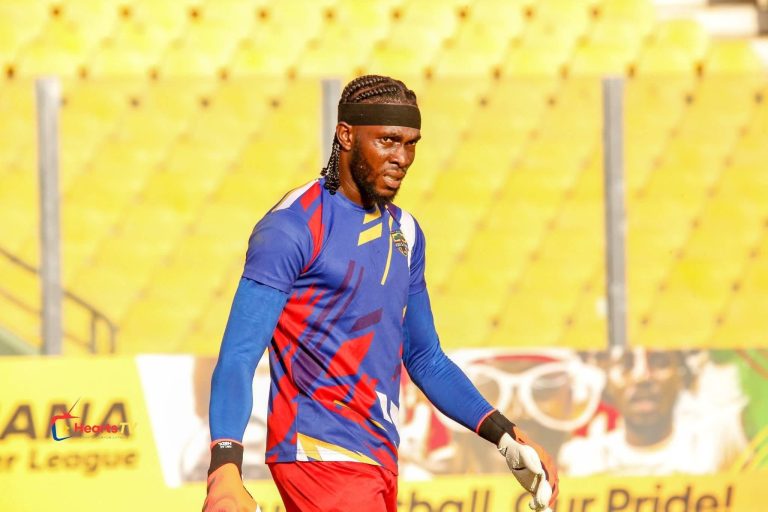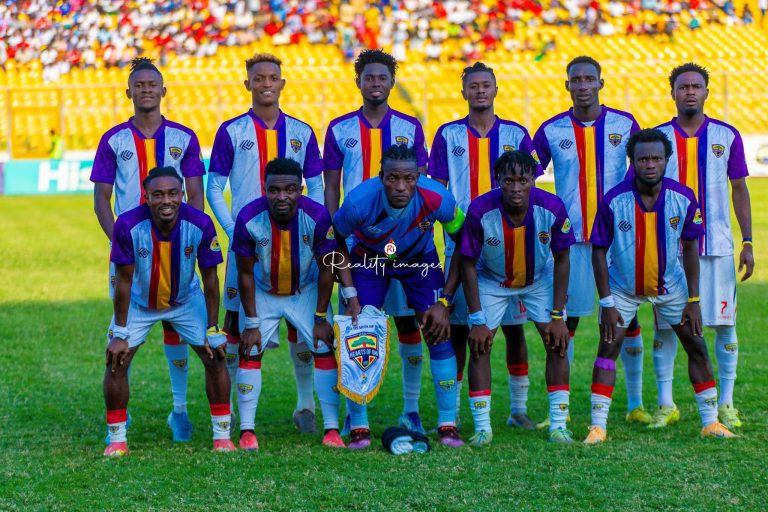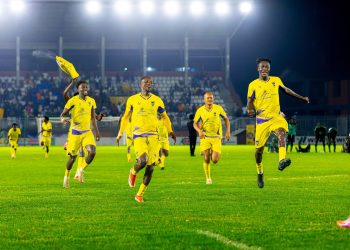Ghana has once again booked its place on football’s grandest stage at the FIFA World Cup, set to unfold across Canada, the United States, and Mexico in 2026. It is only right for me to acknowledge the man at the center of this accomplishment. Coach Otto Addo deserves commendation for achieving what no Ghanaian coach has ever done, qualifying the Black Stars for two consecutive FIFA World Cups, first in Qatar 2022 and now in Canada, the United States, and Mexico 2026. Even more remarkable is that he is the first former Ghana international player to guide the national team to back-to-back qualifications, and quite possibly the first African coach to achieve such a feat.
Yet, despite this historic achievement, the mood across the nation is far from totally euphoric. The general public and even his employer, the Minister of Sport & Recreation, Honourable Kofi Iddie Adams, remains unconvinced by the team’s overall performance. The qualification has not silenced the growing criticism of Otto Addo’s tactical approach, player selection, and the Black Stars’ uninspiring style of play. In fact, calls for his replacement have only intensified.
Coach Otto Addo
Simply qualifying is not enough. Ghanaians now demand a team that will go to the World Cup and compete, not merely participate and return home after the first round. The nation’s expectations have evolved beyond celebration for qualification alone. They now yearn for a Black Stars side that can challenge, excite, and restore pride on the global stage. Many believe that achieving this level of performance and consistency may require a change at the helm of the national team, a new direction, new ideas, and a more assertive approach capable of translating talent into tangible results.
Under the same coach, Ghana failed to secure a spot in the 2025 Africa Cup of Nations after a dismal qualifying campaign against Sudan, Angola, and Niger. Across six matches, the Black Stars failed to win a single game, suffering three defeats and managing only three draws to finish bottom of the group with just three points. The statistics were not good, and the context was even worse. Throughout those qualifiers, Coach Otto Addo used about thirty-five to forty different players, those who actually featured and played minutes, not just those called up, resulting in constant changes that disrupted team chemistry and consistency. The most painful moments came on home soil, where Ghana’s 0–1 loss to Angola at the Baba Yara Sports Stadium brought an end to a proud twenty-year unbeaten record in Kumasi, followed by a 1–2 defeat to Niger at the Accra Sports Stadium, which was the first home loss there since 2008.
Ghana faced Sudan, Angola, and Niger in those AFCON qualifiers, nations whose FIFA rankings placed them well below Africa’s football elite. Sudan sat around 110th in the world, Angola were 85th, and Niger outside the top 120. These standings make it difficult to ignore the fact that Ghana’s failure to qualify for AFCON 2025 came against teams that, on paper, we were expected to thrash comfortably.
These results marked an unenviable chapter in Ghana’s football history, the kind no coach would want to be associated with. Yet Coach Otto Addo remained in charge, even though by every measure he should have been dismissed at that point. Qualification for the Africa Cup of Nations was one of two key targets in his three-year contract, and failure to achieve it was, by normal standards, grounds for termination. Both the Ghana Football Association and the Ministry of Sport & Recreation were aware of this and had quietly considered parting ways with him. However, the financial reality proved too heavy a burden. The Ministry’s purse strings were simply too tight to buy him out of his contract, let alone raise the additional one hundred thousand dollars or more needed to hire a coach of higher pedigree. In the end, pragmatism triumphed over principle, as they chose to let sleeping dogs lie, hoping time and circumstance might redeem what accountability should have resolved.
Technical Director: Winfried Anton Schäfer
In an attempt to steady the ship, and perhaps more tellingly, to cover up a growing lack of confidence in the head coach, the GFA appointed German tactician Winfried Anton Schäfer as Technical Director in January 2025. His appointment was more than a structural adjustment; it was a silent admission that the system no longer trusted its own leadership. Schäfer was tasked with providing technical oversight and direct guidance to Coach Otto Addo, modernizing Ghana’s football structures, and aligning coaching and development philosophies across all tiers of the national setup. His mandate also extended to reforming youth development, strengthening grassroots programs, and crafting a long-term strategic vision for Ghanaian football, essentially doing what many believed the national team coach should have already embodied. In simpler terms, Schäfer was brought in to demonstrate the technical direction, consistency, and authority that Coach Otto Addo himself was expected to show but had failed to deliver.
What also remains a matter of deep concern is the apparent disconnect between the Ghana Football Association’s much-touted “Football DNA” and the actual style and performance of the Black Stars. Ironically, this disconnect exists despite the fact that the GFA had already appointed another German, Bernhard Lippert, as Technical Director before Schäfer. Lippert spearheaded the development of Ghana’s official Football Philosophy, a detailed blueprint intended to serve as the nation’s footballing identity and a guide for every aspect of play from grassroots to the senior national team. This document, hailed as the “Ghana Football DNA,” was meant to define how Ghana plays, its tactical structure, technical emphasis, player development approach, and overall footballing ethos.
Yet today, that vision appears to have vanished completely from the Black Stars’ setup. There is little to suggest that Coach Otto Addo or his technical team actively refer to or even apply this philosophy in their planning, training, or match execution. The team’s play often lacks the rhythm, creativity, and coordinated purpose that the Football DNA was designed to instill. It is as though the carefully crafted blueprint developed through years of study, consultation, and investment has been forgotten, gathering dust while the national team continues to drift without a clear identity. If this Football DNA truly represents Ghana’s vision and footballing soul, then its absence on the pitch raises serious questions about leadership, continuity, and the GFA’s own ability to turn philosophy into performance.
Ghana Black Stars: Yet to Face a Test
In our current World Cup qualifying group, the Black Stars were up against Mali, Madagascar, Comoros, the Central African Republic, and Chad. When examined through the lens of the latest FIFA rankings, the context becomes clearer. Ghana currently sits seventy-fifth in the world and fourteenth in Africa, while Mali ranks around fifty-fourth globally and comfortably among Africa’s top ten. Madagascar is positioned one hundred and ninth, Comoros around one hundred and twenty-ninth, the Central African Republic approximately one hundred and thirty-second, and Chad hovering near one hundred and thirtieth. These rankings show that, apart from Mali, none of Ghana’s group opponents are in the upper competitive tier of world or African football. The victories, therefore, though impressive on paper, came largely against nations still developing their footballing infrastructure, technical depth, and competitive experience.
It is for this reason that the jubilation over qualification must be tempered with context and perspective. Ghana’s dominance in Group I cannot be mistaken for continental or global resurgence. The statistics flatter, but they also conceal the truth: Ghana has yet to prove its strength against the kind of opposition it will face at the World Cup. This moment should not be about celebration alone but shold also be about preparation, translating qualification into performance, and potential into purpose.
As the nation now turns its focus to the World Cup, we must confront these painful realities head-on to ensure that qualification does not become the highlight, but rather the beginning of a true footballing resurgence. The euphoria of qualification must immediately give way to sober reflection and ruthless honesty, not only about the technical direction of the team and the team itself, but also about the deeper structural and cultural problems that continue to hold Ghanaian football back. We cannot continue to disguise mediocrity behind statistics or allow nostalgia to blind us to decline. The failure to qualify for AFCON 2025, coupled with unconvincing performances even in victory, is not an accident; it is the inevitable outcome of a system that has lost its focus, discipline, and identity.
North Africa: The Continental Benchmark
The North African football terrain has once again proven to be the continent’s gold standard, with four out of five nations; Egypt, Algeria, Morocco, and Tunisia, booking their places at the 2026 FIFA World Cup, leaving only Libya behind. Even Libya performed admirably despite being mired in civil unrest and political instability. The consistency of North African teams is no coincidence; it is the product of decades of structured investment, professional administration, and tactical evolution. Their football federations have embraced long-term planning, emphasizing technical education, strong domestic leagues, and integration between club academies and national youth systems. North African clubs operate with professionalism that rivals Europe, and their national teams are built on continuity. Coaches are chosen through merit, systems are respected, and football philosophies are not discarded with every defeat. In contrast, much of West and Sub-Saharan Africa continues to struggle with inconsistency, political interference, and short-term thinking. Where the North Africans build systems, we chase moments. They plan for tournaments; we prepare for matches. Until Black Africa embraces structure over sentiment and continuity over chaos, we will continue to admire their success from a distance.
Asamoah Gyan
Despite deploying the likes of Jordan Ayew, Antoine Semenyo, and Iñaki Williams, the Black Stars remain a team without a striker of true pedigree. The reality is harsh but undeniable. Jordan Ayew although a very humble figure andwww highly respected captain of the Stars has only scored thirty-three goals in one hundred and sixteen appearances, an average of one goal every three and a half games. To be honest, during this World Cup campaign, Jordan has scored the goals that made the real difference, paving Ghana’s path to qualification. Yet, his overall record is not that of a feared marksman—it reflects a tireless worker who gives his all but often without the ruthless instinct expected of a top international forward. Still, we celebrate such efforts, and rightly so, though it should also remind us that Ghana has the talent and history to aim even higher. We can, and must, demand more from our forwards if we are to reclaim our place among football’s elite.
Contrast Jordan’s goall tally with that of Asamoah Gyan, who scored fifty-one goals in one hundred and nine matches, averaging a goal every two games. While also not prolific by global standards, it remains the best Ghana has ever had. Gyan was not just a striker; he was a match-winner, a talisman, a reference point for every attack. His goals were decisive, his presence intimidating. Today, we have runners and triers, but not finishers, players who cover every blade of grass yet falter when the moment demands precision. Ghana cannot go to the World Cup relying on strikers who struggle to convert chances and still hope to outscore nations whose forwards live to punish mistakes. Until we rediscover that killer instinct and produce a striker with both the numbers and the nerve to lead the line, the Black Stars will remain a team of effort without execution, admired for intent, remembered for what might have been, and trapped in a cycle that has persisted for far too long.
When measured against tsome of the great strikers of world football, Ghana’s reality becomes painfully undeniable. Across Europe and beyond, true strikers of repute have defined eras; men whose careers are measured not in appearances but in goals, trophies, and moments that changed games. From England’s Harry Kane, who has scored seventy-four goals in one hundred and nine matches, to Germany’s Miroslav Klose, whose seventy-one goals in one hundred and thirty-seven appearances made him the all-time World Cup top scorer, these forwards did not just play, they delivered. Spain’s David Villa struck fifty-nine goals in ninety-eight appearances, leading his country to the pinnacle of global football in 2010. Italy’s Gigi Riva, ruthless and efficient, scored thirty-five in forty-two matches, nearly a goal per game. The Netherlands’ Robin van Persie registered fifty goals in one hundred and two matches, while Memphis Depay, with fifty-two in one hundred and four, matches that ratio exactly. In France, Olivier Giroud quietly amassed fifty-seven goals in one hundred and thirty-seven games, proving the value of presence, intelligence, and finishing instinct. Move to Portugal and you encounter the phenomenon that is Cristiano Ronaldo, with one hundred and twenty-eight goals in over two hundred appearances—a record that defies time, logic, and age. Robert Lewandowski of Poland stands alongside him with eighty-three goals in one hundred and fifty-two games, while Belgium’s Romelu Lukaku has scored eighty-three in one hundred and fifteen, demonstrating the kind of reliability Ghanaian football has long yearned for.
Asamoah Gyan, Ghana’s all-time top scorer, netted fifty-one goals in one hundred and nine appearances, averaging nearly one every two matches, a return that once placed him among Africa’s elite. In stark contrast, Jordan Ayew, with thirty-three goals in one hundred and sixteen appearances, averages just one every three and a half matches. Yet, in the current qualifying campaign, he has stood tall among the leading contributors globally, matching the likes of Erling Haaland and Mohamed Salah in combined goals and assists. But that narrative may quickly unravel when the stage shifts to elite opposition; where time is shorter, spaces tighter, and every misstep is punished without mercy. And it is here that the story finds its true context, a reminder that statistics, without the proving ground of real competition, can often flatter to deceive.
The numbers tell their own story: while others built legacies through ruthless efficiency, Ghana’s current forwards still struggle to match even their predecessors, let alone the greats of the global game. Antoine Semenyo, and Iñaki Williams, though industrious, have yet to reach double figures for Ghana, whilst Kudus Mohammed has only scored thirteen goals in 46 appearances leaving the team dependent on defenders, midfielders, and wingers to rescue results since we continue to classify the trio as strikers!
Jordan Ayew:
“It’s always an honour to play for Ghana.”
The world’s best strikers are not selected for effort alone; they are trusted because they deliver when it matters. They possess the instinct to be in the right place, the composure to finish under pressure, and the mentality to shoulder responsibility. Ghana’s current crop, by contrast, are yet to demonstrate that killer instinct, that certainty that a half-chance will become a goal. Ghana’s next great leap will depend on finding a forward who embodies the qualities of precision, composure, and instinct, whether homegrown, developed, or naturalized. Modern football rewards efficiency, and the nations that rise are those who convert half-chances into victories. Ghana must do the same or risk becoming a country that celebrates participation while others celebrate progression a nation that once produced Asamoah Gyan but now struggles to remember what a true striker looks like!
In the end, Ghana’s qualification for the 2026 FIFA World Cup must not be mistaken for vindication. This could not be further from the truth. Even the Minister of Sport & Recreation has already stated the obvious, saying, “Coach Otto Addo is lucky.” It is best coming from him because he holds the purse strings. If he is willing to open that purse to the tune of one hundred thousand dollars or more for a new coach as well as pay off the current one, then his opinion is worth sharing. If not, then silence would have been better.
Our qualification represents a moment to reflect, to confront our footballing truth, and to recognize that success built on fragile foundations will always crumble under real pressure. The euphoria of qualification will fade quickly; what must endure is the resolve to rebuild Ghanaian football from its roots with integrity, consistency, and courage.
The Black Stars remain a team of immense potential, blessed with individual talent and national pride, yet still burdened by structural flaws and technical drift. If we continue to treat qualification as the ultimate achievement rather than the beginning of a higher pursuit, we will remain trapped in the same cycle of fleeting joy and recurring disappointment. Ghana must look beyond the scoreboard and rediscover its soul, a clear footballing identity that unites players, coaches, and fans behind one purpose. We must demand more than effort; we must demand excellence. We must insist on a system that nurtures precision, hunger, and belief, not one that hides behind nostalgia or celebrates mediocrity.
The world will not wait for us to catch up. Either we evolve or we fade. The choice is ours, and it must be made now! Not in words, but in action. Only through honest reckoning will the Black Stars shine again, not merely as participants on the world’s stage, but as genuine competitors whose football commands respect, fear, and global admiration.
Source: Nana Kwaku Agyemang


